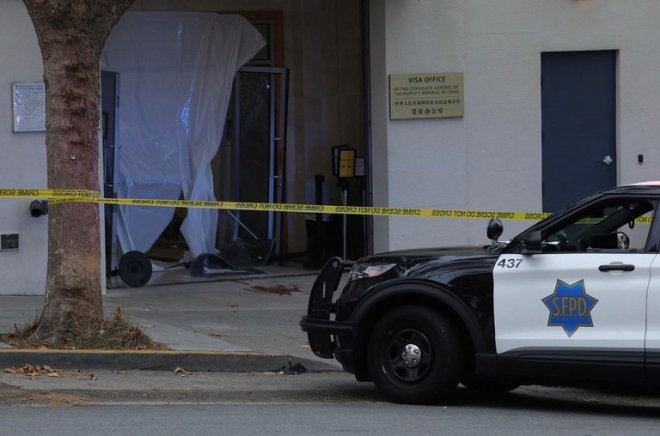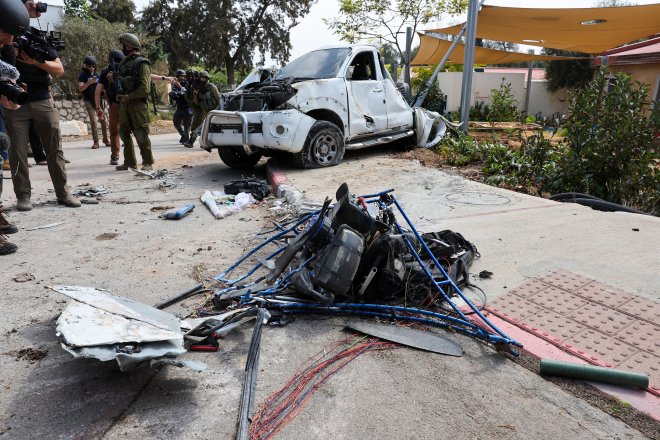UN human rights experts demand explanation for detention of 18 Vietnamese activists
In spite of taking its place on the United Nations Human Rights Council this year for a two-year term, Vietnam continues to arrest and arbitrarily detain activists, human rights defenders and journalists, according to four independent U.N. human rights experts.In a letter to the Vietnamese government recently made public but dated Nov. 2, 2022, Mary Lawlor, special rapporteur on the situation of human rights defenders; Mumba Malila, vice chairman of the Working Group on Arbitrary Detention; Tlaleng Mofokeng, special rapporteur on the right of everyone to the enjoyment of the highest attainable standard of physical and mental health; and Alice Jill Edwards, special rapporteur on torture and other cruel, inhuman or degrading treatment or punishment, demanded an explanation for the detention of 18 people who have been convicted or are still under investigation based on two ambiguous laws.
Former police officer Le Chi Thanh and journalist Truong Chau Huu Danh were convicted of "abusing democratic freedoms" under Article 331 of the Penal Code.
The remaining 16 were convicted or arrested on charges of "conducting propaganda against the state" according to Article 117.
The experts said they were also “alarmed” by the 18 individuals" prolonged detention, sometimes in solitary confinement, and allegations of torture and ill-treatment, reminding the government that: “The freedom from arbitrary detention and from torture and other cruel, inhuman or degrading treatment or punishment are non-derogable rights under international law.”
Human Rights Watch Deputy Asia-Pacific Director Phil Robertson has closely followed the situation in Vietnam for many years. He told RFA the experts sent “solid and well documented” information to the Vietnamese government.
"These independent experts play a vital function in trying to hold Hanoi accountable for its rights-abusing actions against dissidents, especially since the Vietnamese government will feel compelled to formally respond to these allegations. By bringing attention to specific cases like these 18 individuals, the U.N. experts ensure that Hanoi knows they are being closely monitored, and sometimes this will result in better treatment in custody for those persons named in the letter.”
In the 22-page letter, the experts accused the government of harassing the activists before their arrests and using the Penal Code to deny them access to lawyers and contact with their families while under investigation.
Robertson praised the experts for demanding the immediate and unconditional release of the activists, saying their demands are likely to carry more weight with the Vietnamese government than those of non-governmental organizations.
“While Vietnam often ignores entreaties by global civil society organizations, and human rights groups like Human Rights Watch, it is much harder for Hanoi to ignore the U.N. since the government wants to maintain the fiction that it values and cares what the U.N. Human Rights Council thinks,” he said.
“This is especially important now that Vietnam has been elected to the HRC because that places a premium on Vietnam keeping up appearances as a UN member state that claims to uphold and respect human rights."
The U.N. experts said if their allegations were confirmed, Vietnam would be in flagrant violation of international human rights law, especially the International Covenant on Civil and Political Rights to which Hanoi became a signatory in 1982.
Trinh Ba Phuong is one of the 18 activists named in the letter. The land rights defender is serving a 10-year prison sentence, followed by five years’ probation.
Phuong has been transferred to a prison about 1,000 kilometers (621 miles) from his home, making it difficult and expensive for his family to visit.
His wife Do Thi Thu told RFA she was grateful for the efforts of the U.N. experts.
“[I] hope the Government of Vietnam will respond positively by improving the detention conditions for prisoners of conscience and not torturing them or treating them inhumanely, and stop oppressing activists,” she said, adding that she did not expect the government to free her husband and other prisoners of conscience in the near future.
The experts asked the government to provide additional information on the cases raised by the joint letter and to respond to the allegations in the context of Vietnam"s obligations under international human rights law.
So far, the government has not replied, according to the Office of the High Commissioner for Human Rights.
Hanoi has always claimed there are no prisoners of conscience in Vietnam, only those who violate the law.
Translated by RFA Vietnamese. Edited by Mike Firn.
[圖擷取自網路,如有疑問請私訊]
|
本篇 |
不想錯過? 請追蹤FB專頁! |
| 喜歡這篇嗎?快分享吧! |
相關文章
AsianNewsCast























